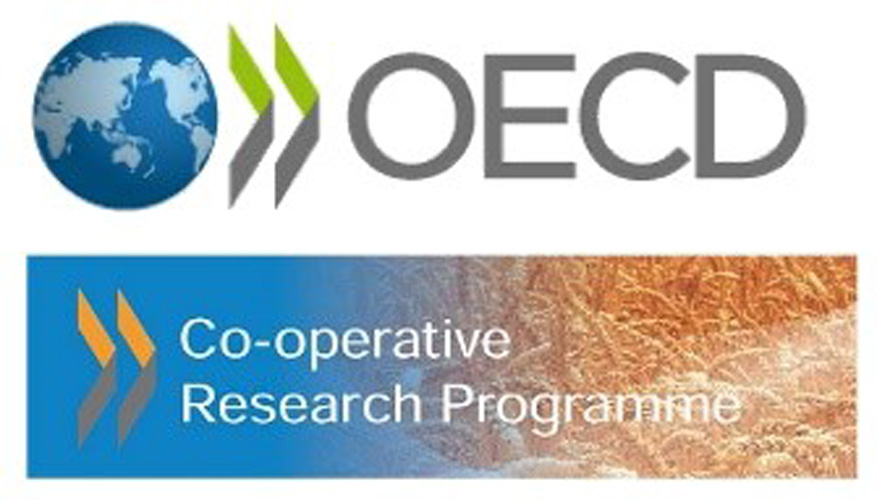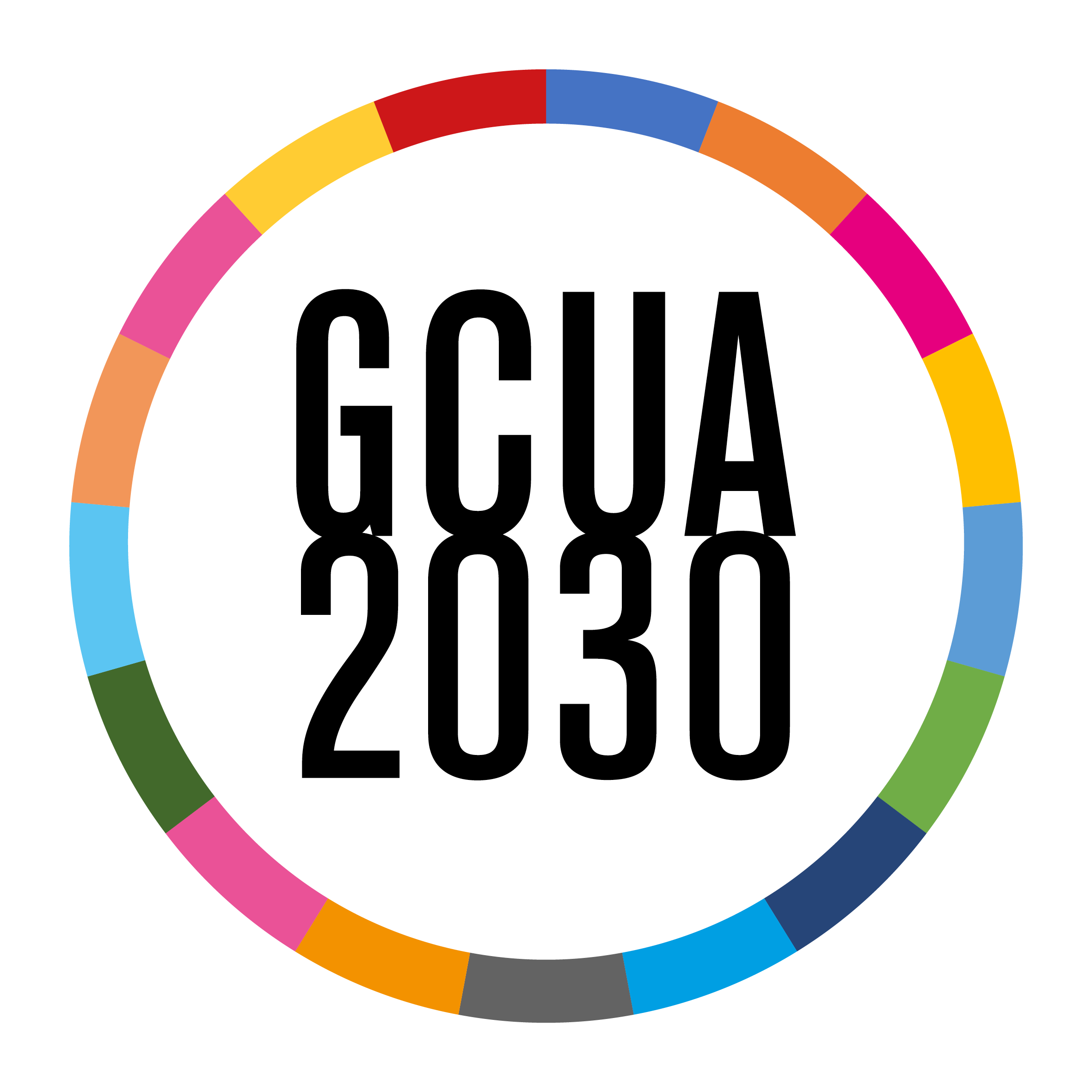Fakta
Ort: Alnarp, Sweden
Arrangör: Swedish University of Agricultural Sciences (SLU)

Alnarp, Sweden
The conference is planned over three days, including a field excursion to visit an agroecological farm in the Scania region of Sweden.

![]()

Organised and sponsored by: SLU, OECD CRP, GCUA 2030, and FoodAct Formas project
The conference will have three key specific goals:
1) To facilitate integration of national and local knowledge bases on agroecology into a comparative framework for the analysis of agroecology and the transfer of agroecological knowledge across geographies
2) To coordinate future efforts for enhancing comparative research on agroecology across OECD countries
3) To build a common platform that can foster knowledge sharing and evidence for agroecology centred policy making at national and international levels.
Attendees: Invited natural and social scientist researchers from across OECD country universities, and other guests (governmental and organisation representatives; European Association for Agroecology).
SLU researchers interested to attend, please contact the organisers. See below.
Aims: In line with the ongoing global discussion on the role of agroecology in sustainability transitions, the proposed conference will bring together researchers from OECD countries to discuss and define what a 'comparative agroecology' approach is, or could be. Hence exploring and defining ‘comparative agroecology’ as a paradigm to upscale and catalyse food and water system transformations across geographies, and bringing together a key knowledge base on this approach, are the main goals of the conference.
Researcher’s input: The researcher will be tasked to contribute a brief 10 minute presentation at the conference reflecting their national context under the title of ‘State of agriculture and agroecology research and policy – a national perspective’.
Output from the conference: Conference proceedings will be published, potentially in several forms, including the possibility of a synthesis in a peer-reviewed journal.
The event should be referred as an “Event sponsored by the OECD’s Co-operative Research Programme: Sustainable Agricultural and Food Systems.
We are opening up a small section of the agroecology conference programme for online participation. In addition, SLU researchers that express interest are welcome to join in person in Alnarp (excluding lunch and field visit).
Please register below.
Day 1
Venue: Crafoordsalen, Navet, Campus Alnarp, SLU
Morning sessions (8:30-12:00 hrs):
1) 8:30-9:00 Opening of the conference with a background presentation by the convenors and key stakeholders:
Swedish University of Agricultural Sciences (SLU), Division of Rural Development, Department of Urban and Rural Development
SLU Global (Vice-Chancellor's Office) & Coordinator, Global Challenges University Alliance
2) 9:00-9:20: Welcoming words by authorities from SLU
3) 9:20-9:40: CRP Theme co-ordinator attending the event to give a brief presentation about the CRP
4) 9:40-12:15: Country-based presentations under the topic: ‘State of agriculture and agroecology research and policy – national and comparative perspectives’
Northern Europe
Coffee break:
North & South America
12:15-13:00: Lunch
Afternoon sessions (13:00-17:00 hrs):
Asia-Pacific region
Central & Southern Europe
Questions, comments and discussion facilitated by Cristian Alarcon and Paul Egan.
Block 1
Northern Europe
Dr. Cristian Alarcon and Dr. Johanna Bergman (Sweden), Dr. Christine Watson (UK), Dr. Peter McKeown (Ireland) – Dr. Traci Birge - (Finland) (20 minutes)
Asia-Pacific region
Dr. Simona Zollet (Japan), Dr. Wendy Vance (Australia), and Dr. Lauren Waller (New Zealand) – (20 minutes)
16:10-16:20: Coffee break
16:20-17:00 Block 2:
North & South America
Dr. Leah Renwick (Chile), Dr. Juliana Cepeda (Colombia), and Dr. Rachel Bezner Kerr (USA) – (20 minutes)
Central & Southern Europe
Dr. Maria Busse (Germany), Dr. Gusztav Nemes (Hungary) and Dr. Alberto Sturla (Italy) – (20 minutes)
2) 17:00-17:30: Plenary session to discuss comparative dimensions of agroecology
Facilitated by Paul Egan PhD , Associate Professor
Swedish University of Agricultural Sciences, Alnarp, Sweden (30 minutes )
Dinner
Day 2
(8:30-17:00 hrs):
Bus departs at 8:30 from Malmö and arrives to farm at 9:00
1) 9:00-12:00 Study visit to the farm Rinnebäcks gård Värpinge Grön Gårdsbutik
The visit has the objective to: 1) hold discussion and dialogue with farmers about their knowledge needs and barriers and enablers on agroecology, 2) highlight gaps in agroecological knowledge that could be bridged by a comparative agroecology.
The visit will include a walk through the farm to contrast the participants’ own national agricultural contexts with that of the visited farms. Prior to the visit, the organising committee will prepare and share with the participants background information about the farm.
12-13:00: Lunch in the farm
13:15: Bus departs from farm to Alnarp
Afternoon sessions (14:00-16:00 hrs):
Venue: Crafoordsalen, Navet, Campus Alnarp, SLU
14:00-14:40 Keynote speaker: Marcos Lana (Associate Professor, SLU): Perspectives from the European Association for Agroecology (Agroecology Europe)
14:40-15:30: Cristian Alarcon: Insights from the FoodAct project:Action Research for Sustainable Food Security in times of Crisis - Agroecology in Sweden, Italy and Chile
Social event
Day 3
Morning sessions (9:00-12:00 hrs):
Venue: Plantan, Agricum building, Campus Alnarp, SLU
9:00-9:45: Keynote address: Jennie Barron (Professor in Agricultural Water Management (Swedish University of Agricultural Sciences): Water Security for agroecology advancement: a perspective with examples from rainfed and irrigated systems.
9:45- 10:15 Local policy perspective: Gunilla Andersson, Environment Department, Malmö Stad: Malmö’s work towards a sustainable food system
10:15:-11:00: Lessons from previous and relevant initiatives on agroecology: a conversation facilitated by Cristian Alarcon
11:00-11:15: coffee break
11:15-12:30 Plenary sessions to continue discussion and analysis of comparative dimensions of agroecology. Group discussion organised through two parallel groups:
Group 1: Knowledge transfer – Steps to facilitate integration of national and local knowledge on agroecology and transfer of agroecological knowledge across political and cultural boundaries.
Group 2: Research and Policy – Coordination of future comparative research on agroecology across OECD countries and agroecology-centred policy making at national and international levels
12:30-13:30: Lunch
13:30-14:00 Systematization of discussions:
Facilitated by Paul Egan.
Conference wrap-up session (14:00-17:00 hrs):
Venue: Stora Sessionssalen, The Castle (Slottet), Campus Alnarp, SLU
What has been learned, messages to the policy community, and planned outputs:
1) 14:00- 15:30: Agroecology and how we “show up”: Building a learning community and fostering connection. Session facilitated by Dr. Alexandra D’Urso, Researcher and Educational Developer at SLU’s Division of Learning and Digitalisation.
In this session, we will discuss concepts and test practices that can support mutual understanding and a sense of community in learning communities.
2) 15:30-16:30: Conclusions and ways forward: Facilitated by Paul Egan, and Cristian Alarcon
Including a shared work plan on planned outputs from the conference and next steps
17:00 Final dinner
Paul Egan, Associate Professor/ Researcher
Department of Plant Protection Biology
E-mail: paul.egan@slu.se
Telephone: +46 (0) 40-415162